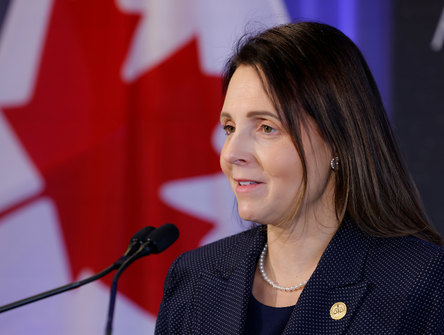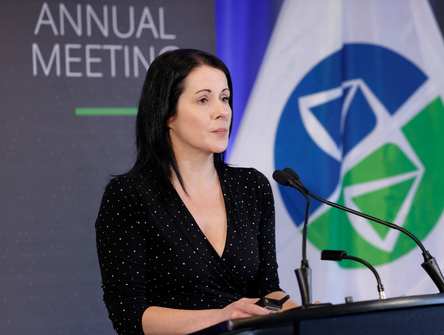A constitutional end-run?
In the wake of the national carbon-pricing rulings, the federal government's power to regulate climate change could be broader than we think.

As climate change continues to move to the front of the policymaking agenda, there is still plenty to process from the Supreme Court of Canada's reference ruling on carbon pricing in March. In a country where federalism is often synonymous with chaos, the question now is how much leeway the ruling gives Ottawa to fulfil what it sees as its environmental responsibilities.
According to Josh Hunter, the lead counsel for Ontario in its challenge of the Greenhouse Gas Pollution Pricing Act, the court had a tricky needle to thread in crafting a one-size-fits-all national solution that recognizes provincial diversity.
"The really interesting question will be, what comes next [when] the federal government tries to rely on a broad interpretation of its power to regulate local undertakings, to regulate all the myriad of local activities that do contribute to climate change, but that are traditionally regulated by the provinces." Hunter made his comments during a panel discussion as part of last month's CBA Environmental, Energy and Resources Law Online Symposium moderated by Lisa DeMarco, CEO at Resilient LLP.
Alberta's effort to get the federal government's Impact Assessment Act declared unconstitutional is a case in point. The matter is under reserve, having been heard by the Alberta Court of Appeal. The province argued that the federal law not only duplicates provincial efforts, but it allows Ottawa to consider how a project would affect federal efforts to fight climate change in ways that go beyond strictly environmental factors to include those with an economic and social character.
Canadian federalism can often defy logic, which is why concerns about jurisdictional creep keep resurfacing. When it comes to the environment, Ottawa can rely on many federal heads of power – taxation, trade and commerce, Indigenous peoples, navigable waters, and criminal law, to name but a few.
At times, the division of powers is clear. Who would dispute that the federal government can assert its jurisdiction when a project involves building a highway across a bridge over navigable water? "But can they decide whether you should have a highway or you should have light rail?" said Hunter. "Can they decide where you should build housing? How much housing you should build? How dense should it be?"
The Supreme Court never really addressed those questions head-on, which is problematic, in Hunter’s view, given how subjectively they assessed the national concern test . "But those questions are still there, and the subjectivity they put in the test for this and many other matters will keep all us lawyers busy for years to come," he added.
According to University of Ottawa Professor Amir Attaran, who represented intervener Athabasca Chipewyan First Nation in the reference case, the federal government now has a major revenue-generating tool. "The sky's the limit when it comes to using emissions pricing," he said during the panel, and not just by carrying out its promise to increase the carbon price to $170 per tonne by 2030. He said he's more intrigued by what the court wrote about regulatory charges and how they can be spent. "The wording the court used makes me think that the federal government could, if it wanted to, take that $170 a tonne and spend it on just about anything."
"It remains to be seen how much they can divert that revenue outside of environmental purposes and maintain the constitutionality," Attaran cautioned. "I suspect there is a red line somewhere […], but I don't really know where that red line exists." However, he added that the federal government could probably direct the funds to projects aimed at maximizing energy efficiency throughout the economy and industry; and to other environmental initiatives not specifically related to climate change, such as restoring damaged habitats. That kind of latitude is especially relevant at a time when the federal government is likely to report a deficit above C$350 billion. "They're going to be looking for money and this may be a tool for them to look for money in the future," Attaran said.
Also, the GGPPA grants cabinet a lot of discretion, said Hunter, from the carbon price, which it sets, to deciding what constitutes a carbon-based fuel, and how the money gets spent. "So there's a lot of room for industrial policy under the claims of greenhouse gas regulation," he said. "From a policy point of view, there's a lot of concern about the vast scale of discretion entrusted to the governor in council by Parliament in the Act."
There are also more subtle real-world consequences to think about. Domestically, said Sharlene Telles-Langdon, lead counsel for the Attorney General of Canada on the case, "we know what Canada's climate plan is at the moment. It involves a predictable escalation of carbon pricing. The 'what's next’ question depends significantly on the next election." In the end, she believes the ruling went a long way to resolving an issue that was causing significant tension in the federation. Proof of that, she said, is that "the Conservative party has now introduced carbon pricing as part of its platform."
Then there is the question of how the decision intersects with Canada's role in the international playpen. For one, international trade is undergoing a massive revolution, Attaran cautioned. "The globalization of goods is in reverse gear, the World Trade Organization is falling apart; its appellate body is essentially not functioning right now. The globalization that we are going to see is going to be in finance rather than goods."
This past month, leaders of the G-7 group of nations publicly endorsed a global minimum corporate tax of at least 15% on multinationals to address global tax avoidance and evasion. They also agreed to push ahead with climate reporting in line with the recommendations of the global Taskforce on Climate-related Financial Disclosures. Attaran also predicts that trade and globalization will increasingly involve the imposition of climate standards "in ways we have never seen before." He points to a renewed push among major economies for border tax adjustments between countries to encourage climate action.
How the WTO would view such measures is another matter. However, the WTO is weak right now, said Attaran. "The countries that are invested the most in cleaning up their industrial economies like China, like the U.S. will probably be under Biden, will be keen to use their emission standards as a tool of comparative advantage in trade," he said. "And we in Canada will either keep up, or if we don't, we're probably going to see tariffs slapped on everything we make in the form of border tax adjustments. There is a real incentive for us to keep pace and for us not to be the takers of these rules, but the makers."
These are all good reasons not to get too caught up in domestic political squabbles, he added. On the other hand, just as each country can undertake experiments in public policy to manage global problems, provinces are also supposed to serve as laboratories of democracy in a federation. Ottawa's promise to establish a Canada-wide childcare system is one such example, said Hunter. "It's being done by cooperating with the provinces, taking something that was developed in Quebec, and saying we want to encourage others to do this in ways that works for their circumstances."
"Yes, federalism is inefficient," he added. "But federalism has other benefits."


